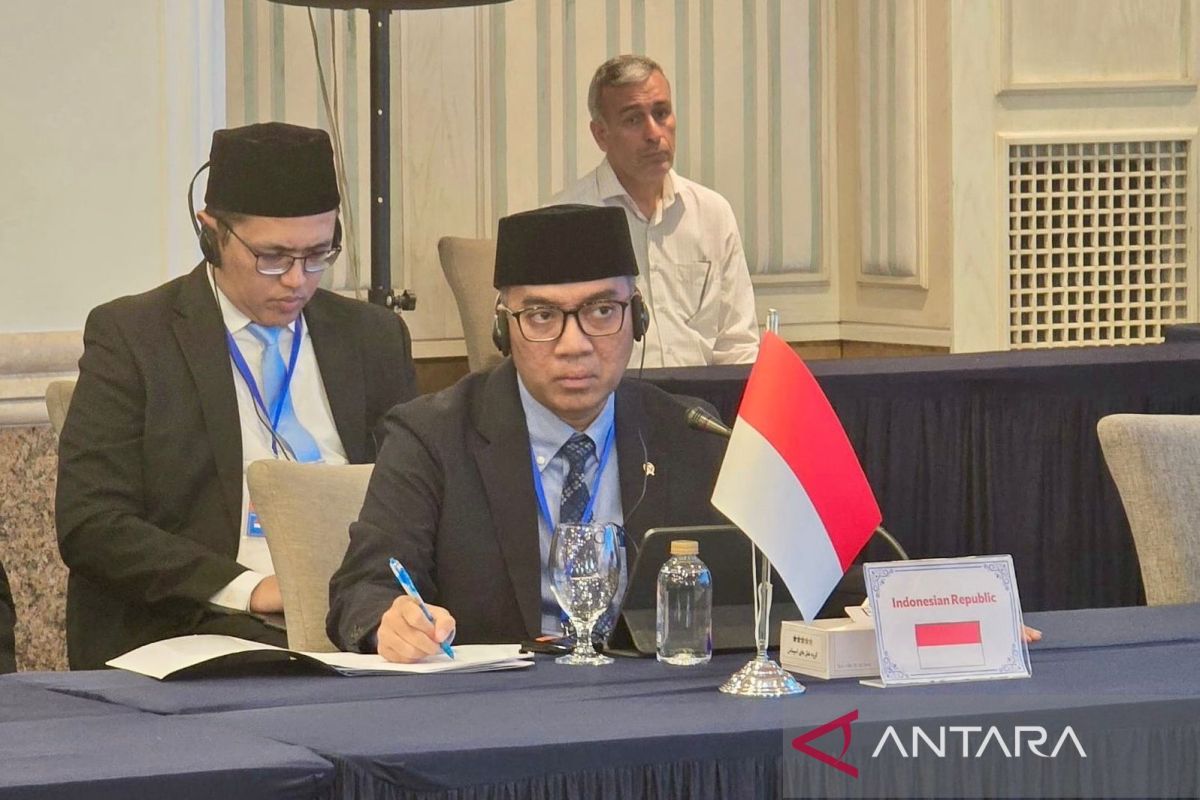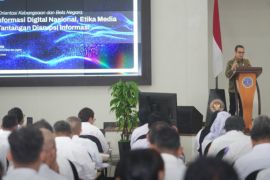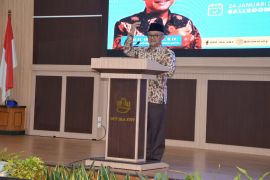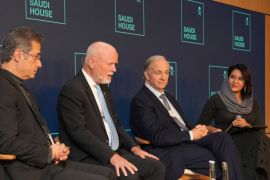Indonesia expressed its readiness and commitment to forging strategic partnerships with member states of the Organization of Islamic Cooperation (OIC) to build a robust artificial intelligence (AI) ecosystem.
"Indonesia stands ready to become a strategic partner in developing an innovative and sustainable AI ecosystem. Together, we can lead the Islamic world into a new era marked by inclusive and fair technological advancement," Higher Education, Science, and Technology Minister Brian Yuliarto remarked.
Yuliarto made this statement during the 2nd Ministerial Meeting of the OIC-15 Dialogue Platform in Tehran, Iran, on Monday (May 19), according to his office's statement cited here on Tuesday.
At the event, Yuliarto also elaborated on Indonesia's perspectives and strategies for utilizing AI across key national sectors.
"More than futuristic technology, AI is key to accelerating inclusive social and economic transformation. Indonesia sees AI as a strategic tool for building food security, expanding access to health services, promoting renewable energy, and sustainably downstreaming natural resources," he affirmed.
The minister told delegates from OIC member states that AI can be utilized to help address challenges related to population growth and climate change, both of which are vital for ensuring food security.
He remarked that AI-powered agricultural machinery and equipment could enable farmers to monitor the condition of their land and crops in real time, allowing for more efficient farming practices.
"AI supports precision agriculture, plant monitoring, soil analysis, and the optimization of supply chains. AI-based systems could increase agricultural productivity, lower post-harvest losses, and build a food system that is more resilient to environmental challenges," he highlighted.
Turning to healthcare, the minister affirmed that offering reliable AI-powered telemedicine services could help overcome barriers in reaching residents of remote or isolated regions without compromising diagnostic accuracy.
"This technology can help overcome issues revolving around a lack of infrastructure and health workers, especially in underserved areas," he stated.
Yuliarto then discussed the development of renewable energy, emphasizing that AI could optimize the conversion of solar, geothermal, and wind energy into electricity through smart grid systems.
Regarding downstream processing of natural resources, he underlined that AI could enable more efficient and eco-friendly processing of minerals and other raw materials, laying a foundation for a more competitive manufacturing sector.
Related news: Indonesia accelerates semiconductor, AI industry development
Related news: Indonesians must be AI developers, not just users: govt
Related news: Indonesia urges OIC to reject Gaza relocation proposals
"Indonesia stands ready to become a strategic partner in developing an innovative and sustainable AI ecosystem. Together, we can lead the Islamic world into a new era marked by inclusive and fair technological advancement," Higher Education, Science, and Technology Minister Brian Yuliarto remarked.
Yuliarto made this statement during the 2nd Ministerial Meeting of the OIC-15 Dialogue Platform in Tehran, Iran, on Monday (May 19), according to his office's statement cited here on Tuesday.
At the event, Yuliarto also elaborated on Indonesia's perspectives and strategies for utilizing AI across key national sectors.
"More than futuristic technology, AI is key to accelerating inclusive social and economic transformation. Indonesia sees AI as a strategic tool for building food security, expanding access to health services, promoting renewable energy, and sustainably downstreaming natural resources," he affirmed.
The minister told delegates from OIC member states that AI can be utilized to help address challenges related to population growth and climate change, both of which are vital for ensuring food security.
He remarked that AI-powered agricultural machinery and equipment could enable farmers to monitor the condition of their land and crops in real time, allowing for more efficient farming practices.
"AI supports precision agriculture, plant monitoring, soil analysis, and the optimization of supply chains. AI-based systems could increase agricultural productivity, lower post-harvest losses, and build a food system that is more resilient to environmental challenges," he highlighted.
Turning to healthcare, the minister affirmed that offering reliable AI-powered telemedicine services could help overcome barriers in reaching residents of remote or isolated regions without compromising diagnostic accuracy.
"This technology can help overcome issues revolving around a lack of infrastructure and health workers, especially in underserved areas," he stated.
Yuliarto then discussed the development of renewable energy, emphasizing that AI could optimize the conversion of solar, geothermal, and wind energy into electricity through smart grid systems.
Regarding downstream processing of natural resources, he underlined that AI could enable more efficient and eco-friendly processing of minerals and other raw materials, laying a foundation for a more competitive manufacturing sector.
Related news: Indonesia accelerates semiconductor, AI industry development
Related news: Indonesians must be AI developers, not just users: govt
Related news: Indonesia urges OIC to reject Gaza relocation proposals
Translator: Sean F, Tegar Nurfitra
Editor: Azis Kurmala
Copyright © ANTARA 2025











